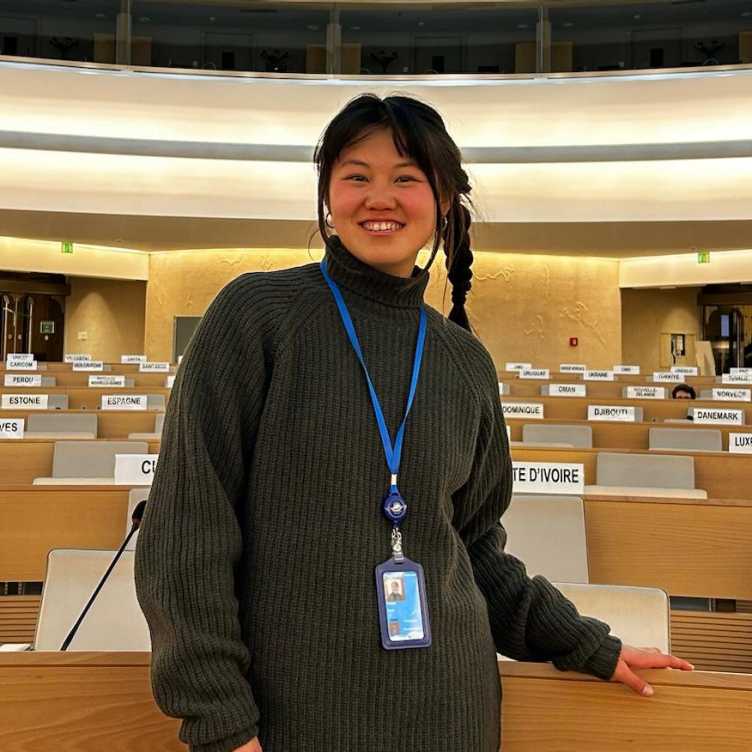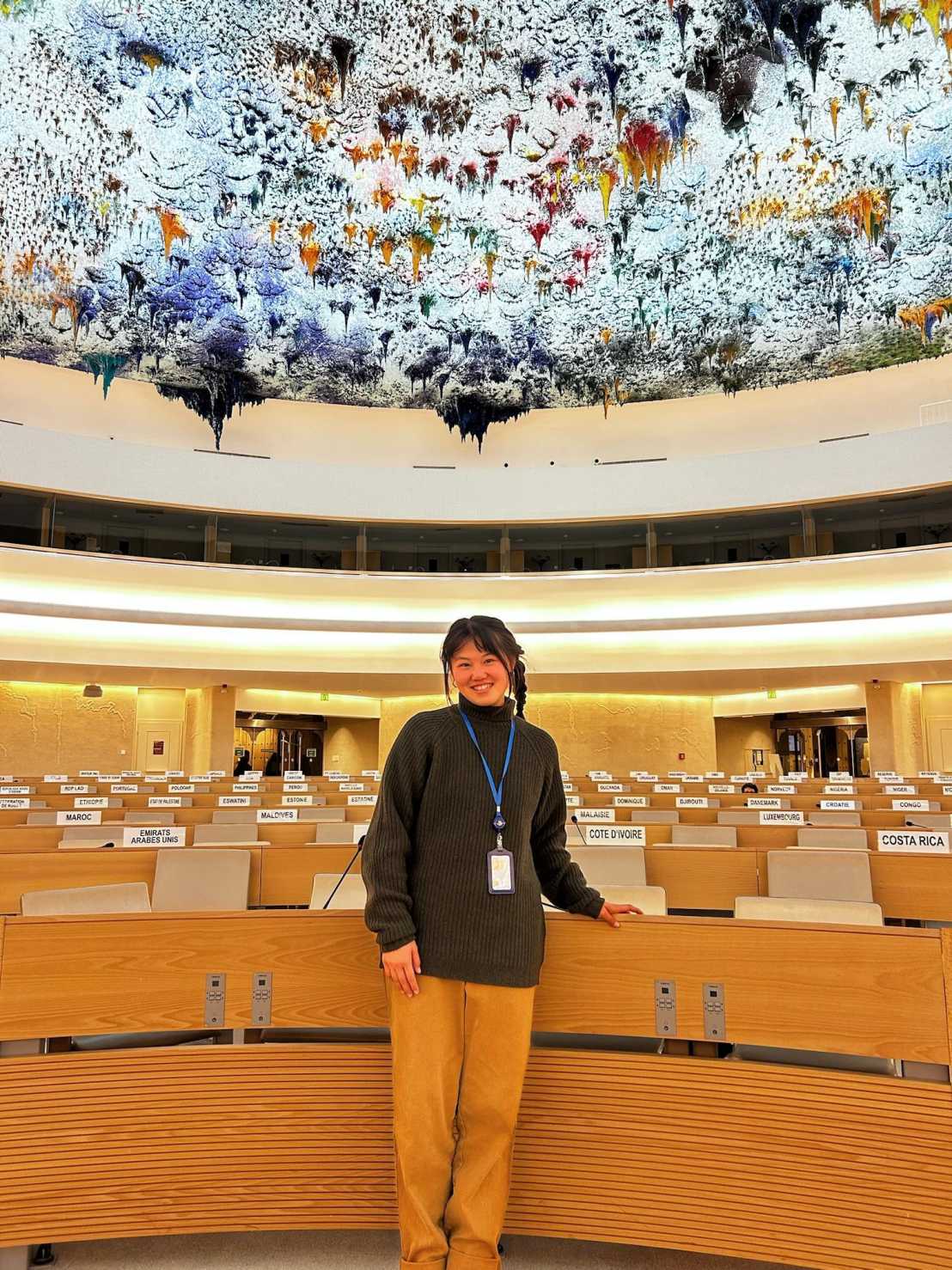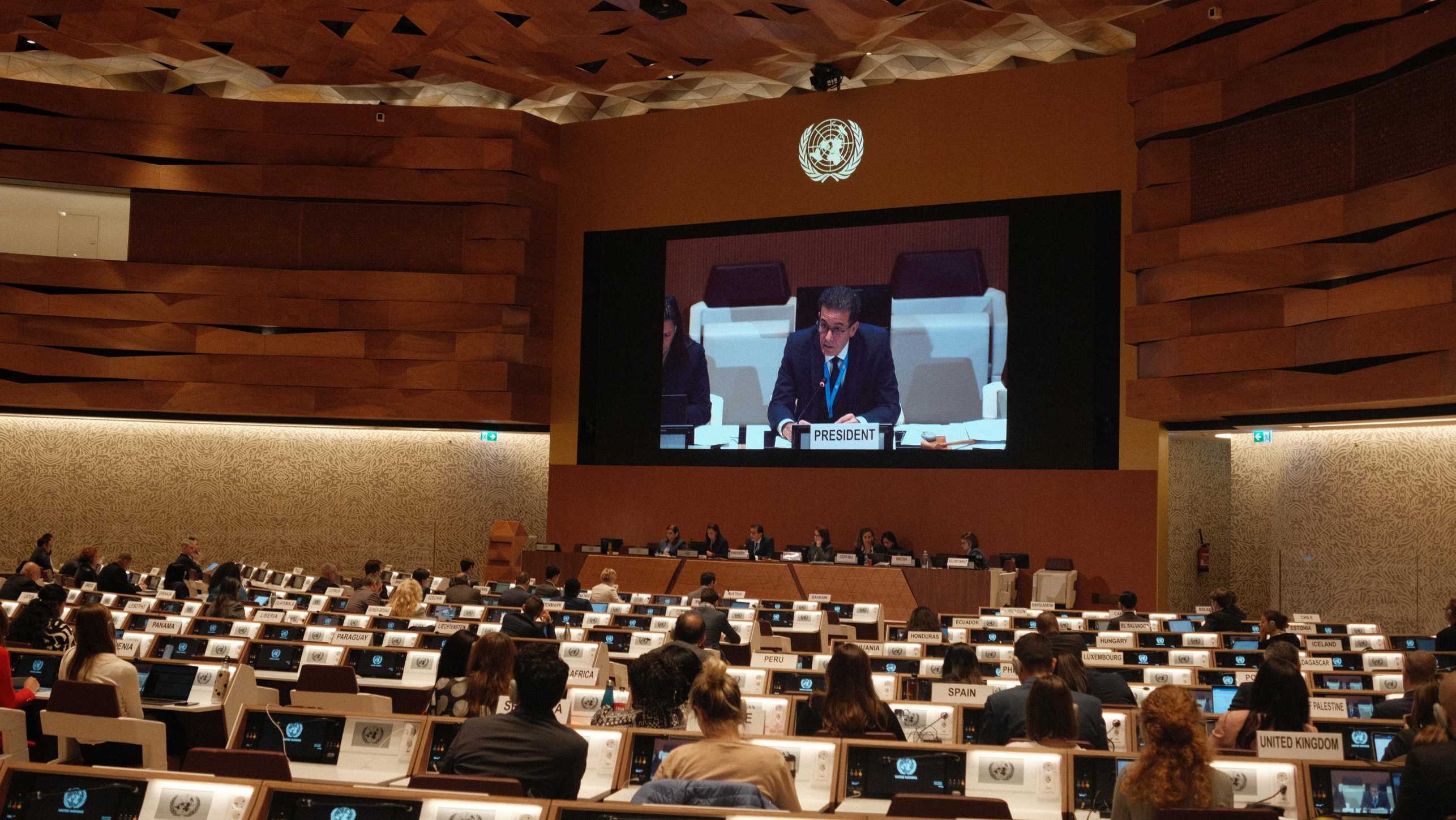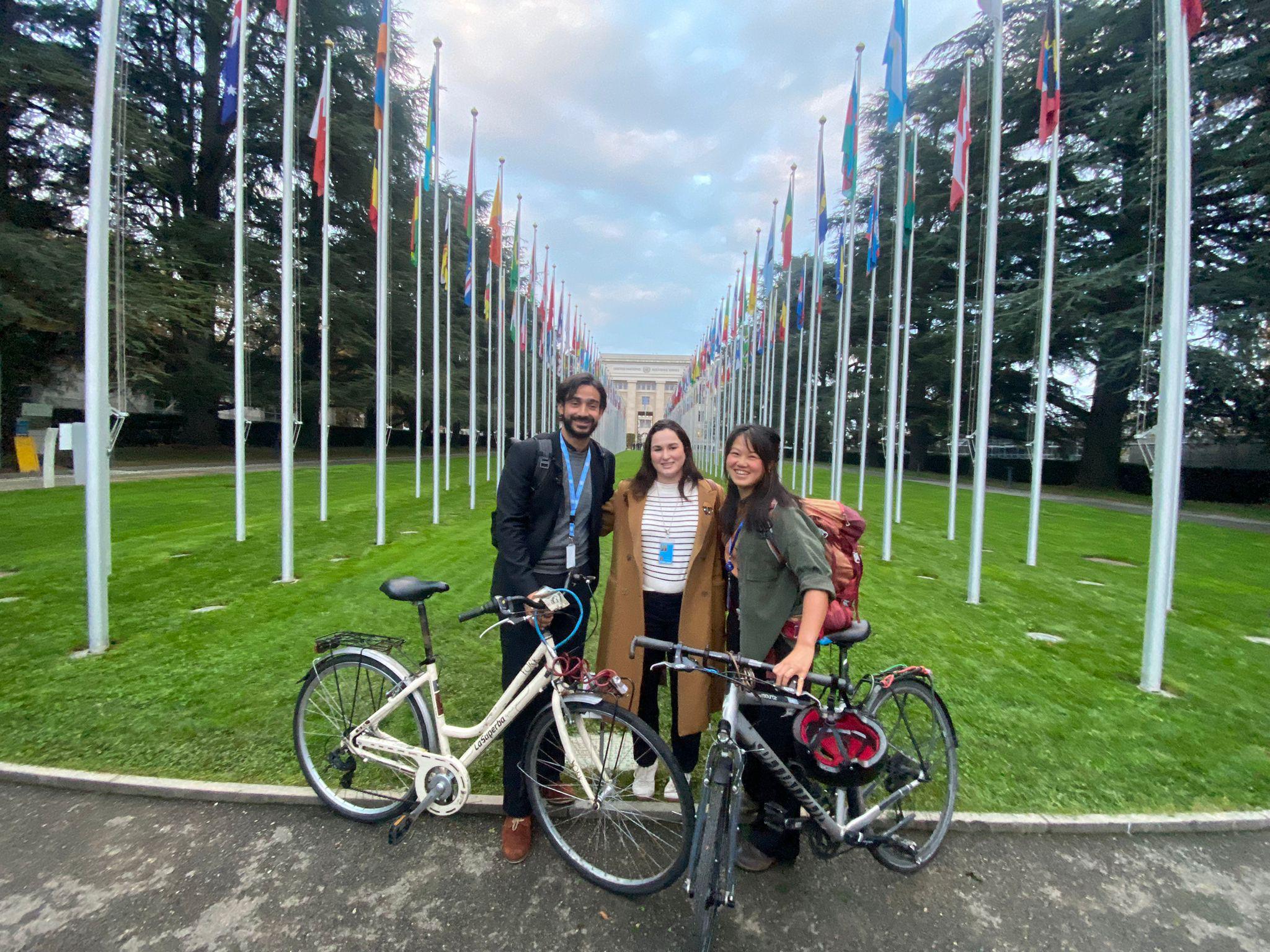Internship Insights: Disarmament affairs intern at the United Nations Office in Geneva

Meet Yilin Huang, a recent graduate of the STP Master’s program. She began her studies in autumn 2021, minoring in Resources and Environment. Before beginning her Master’s, she completed a bachelor’s degree in materials engineering from the University of Toronto, in Canada. In this interview, Yilin shares her experience during an internship at the United Nations, where she worked with the Office for Disarmament Affairs (UNODA).
Can you tell me about when you attended the internship and how you acquired funding?

My internship at the United Nations was in the autumn of 2024, from September to the end of the year. I was with the UNODA team in Geneva, which works out of the UN Geneva offices, called Palais des Nations. This internship was at the end of my studies, after completing my thesis, but I was able to take advantage of being a registered student to qualify for the UN’s student internship.
With some exceptions, most UN internships are unfortunately still unpaid, so acquiring individual funding was a pre-requisite for me to be able to do the internship. I applied for, and was fortunate to receive a grant from external page Open Philanthropy. They’re a US-based nonprofit research organization, providing funding for opportunities that they believe are high impact. Disarmament is a high impact cause area, but is generally underfunded, particularly when you compare it to the amount of weapons and defense funding. The UN team was also very supportive in understanding that I would only be able to take the internship if I could secure funding.
How did you learn about the internship?
I first learned about the work the UN disarmament team does during my Master Thesis in Laos. My thesis was environmentally focused, but during our time off we would visit local establishments. During a visit to a museum in the capital, Vientiane, I learned that Laos is the world’s most bombed country per capita, and that they still have many casualties each year from unexploded ordinance. I found this history to be very disturbing but powerful. The museums also mentioned how the UNODA had contributed to the 2008 Oslo Declaration on the banning of cluster munitions.
Having studied policy for the last three years, I was also generally curious about how policy is actually drafted and implemented at a multinational scale. I understood in theory how one would analyze different policy schemes, but didn’t really have a good sense of how governance actually worked between so many different – and often competing –parties. The UN had always stood out to me as a good place to see this in practice.
What are some benefits of completing an internship during your master’s studies?
During the STP master’s, we take a course on public institutions where we learn about the different structures and types of governments. During this internship, I had the opportunity to see the diplomatic effects of these different governance structures, and how important a factor that is in effective multilateralism. In annual meetings that our team had in November, I also got to see what policy instruments bodies like the UN have in place to get many stakeholders and states to discuss sensitive topics. I must note that these do not always work either. But that’s also important to understand, and is the reality of policymaking in our world. Everything seems possible on paper, but when you bring it into the meeting hall, you need to learn how and when to push, and not be personally frustrated by every set-back. It’s definitely something I’m still learning.
We're also quite lucky to be based in Switzerland, as a lot of international organizations convene here. There are a lot of opportunities to take part in the topics you care about. ISTP gives you an understanding of the background structures and why these things exist, and working shows you how they are handled on the ground.

What do you do in your day-to-day as an intern at the UNODA?
The team I worked with is the Convention on Certain Conventional Weapons (CCW), which bans and restricts weapons that are deemed to cause unjustifiable suffering to combatants and civilians. This includes, but is not limited to, weapons like landmines, booby traps, and incendiary weapons. The core team is rather small, six people, all fairly young, and very motivated. Looking back, I think I was very lucky with this, as I learned quite quickly what everyone was working on, and where people might need help. I was given responsibilities on-par with the rest of the team, and was treated like a full team member.
Most of what I worked on with the team was drafting statements, which the team uses at conferences and meetings, as well as summary notes from forums and talks related to weapons, because not everyone from the disarmament team has time to attend all these, but it’s important for us to be informed on the latest discourse. I also contributed to research for regular internal reports on the latest uses of weapons, for example in the conflict in the Middle East and Ukraine. So the work was a combination of writing and topic-based research.

What advice would you give to other students considering internships during their studies?
Internships in general are a great chance to try a role that you’re curious about. For some, part of the benefit of internships are potential future job offers, but personally, I think an even larger draw is that it just gives you a chance to try something short-term, and while still a student, maybe the best thing is to just try and experience as much variety as you can.
Specifically for internships at large NGOs, such as the UN, a few things to note. First, hiring timelines are usually long. So, for example, if a student would like to squeeze an internship into the summer between semesters, you would probably want to apply by the end of the fall semester before or beginning of the spring semester. Orgs like the UN get a lot of applications for each opening, so it takes them a long time to review.